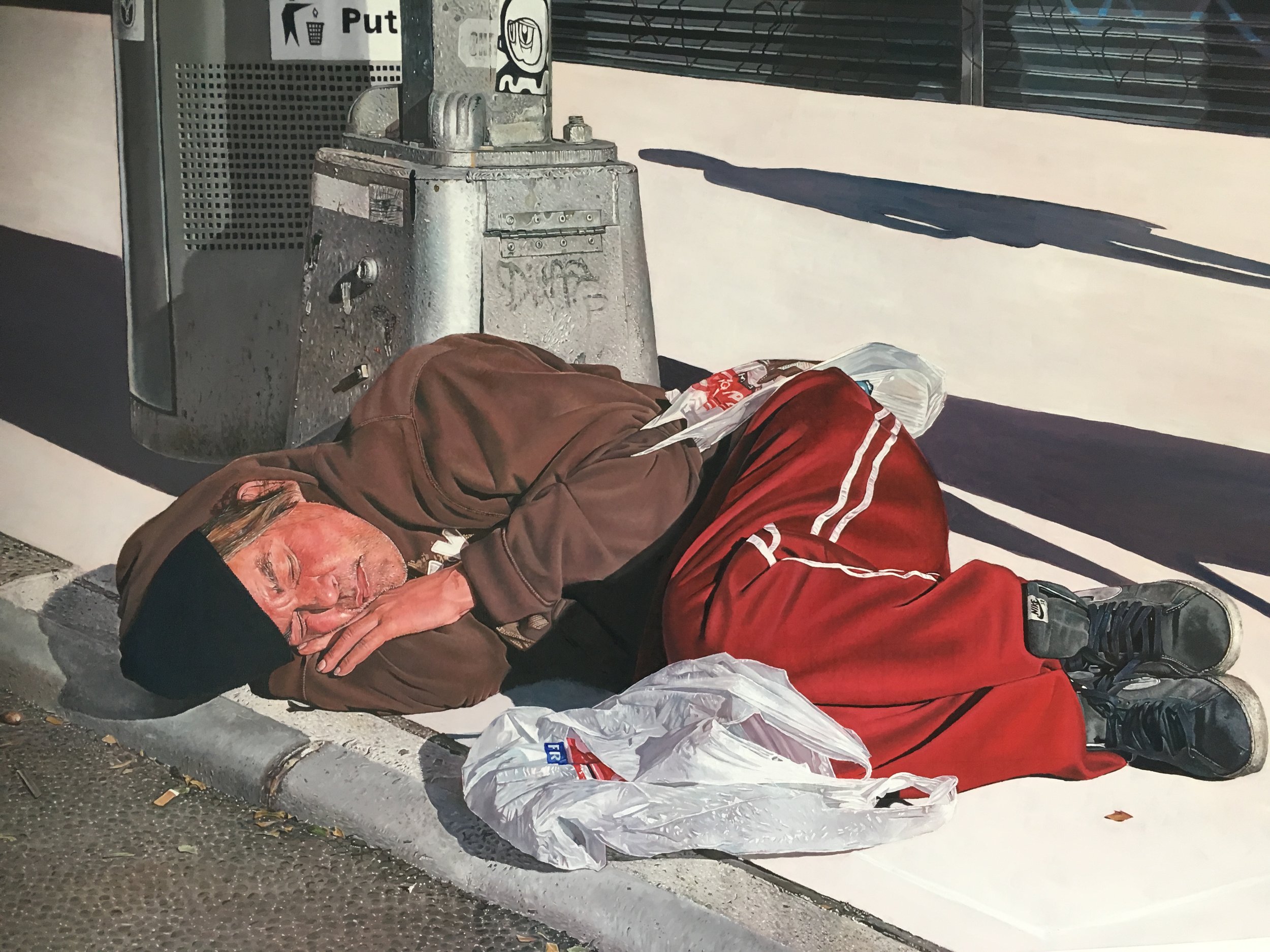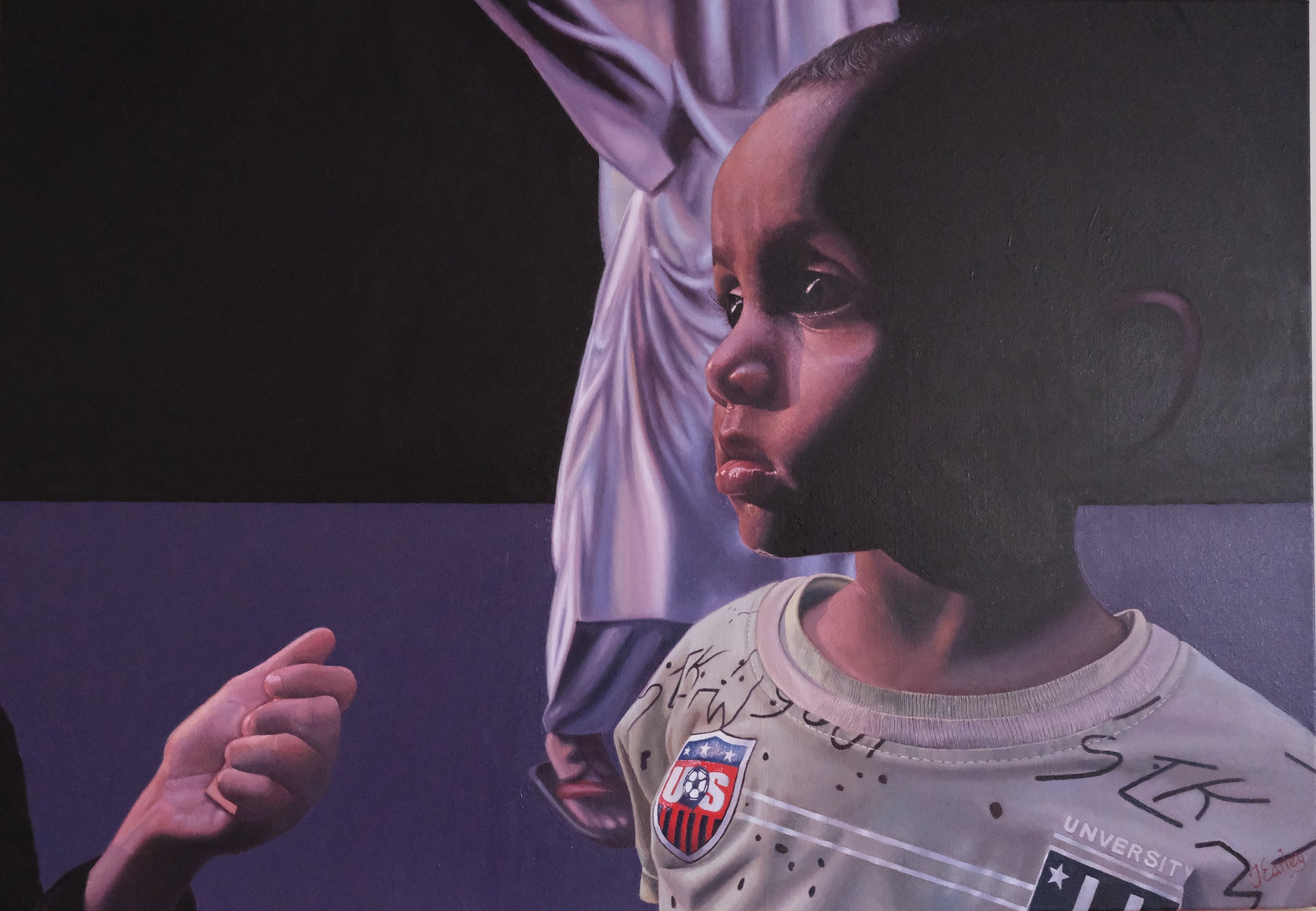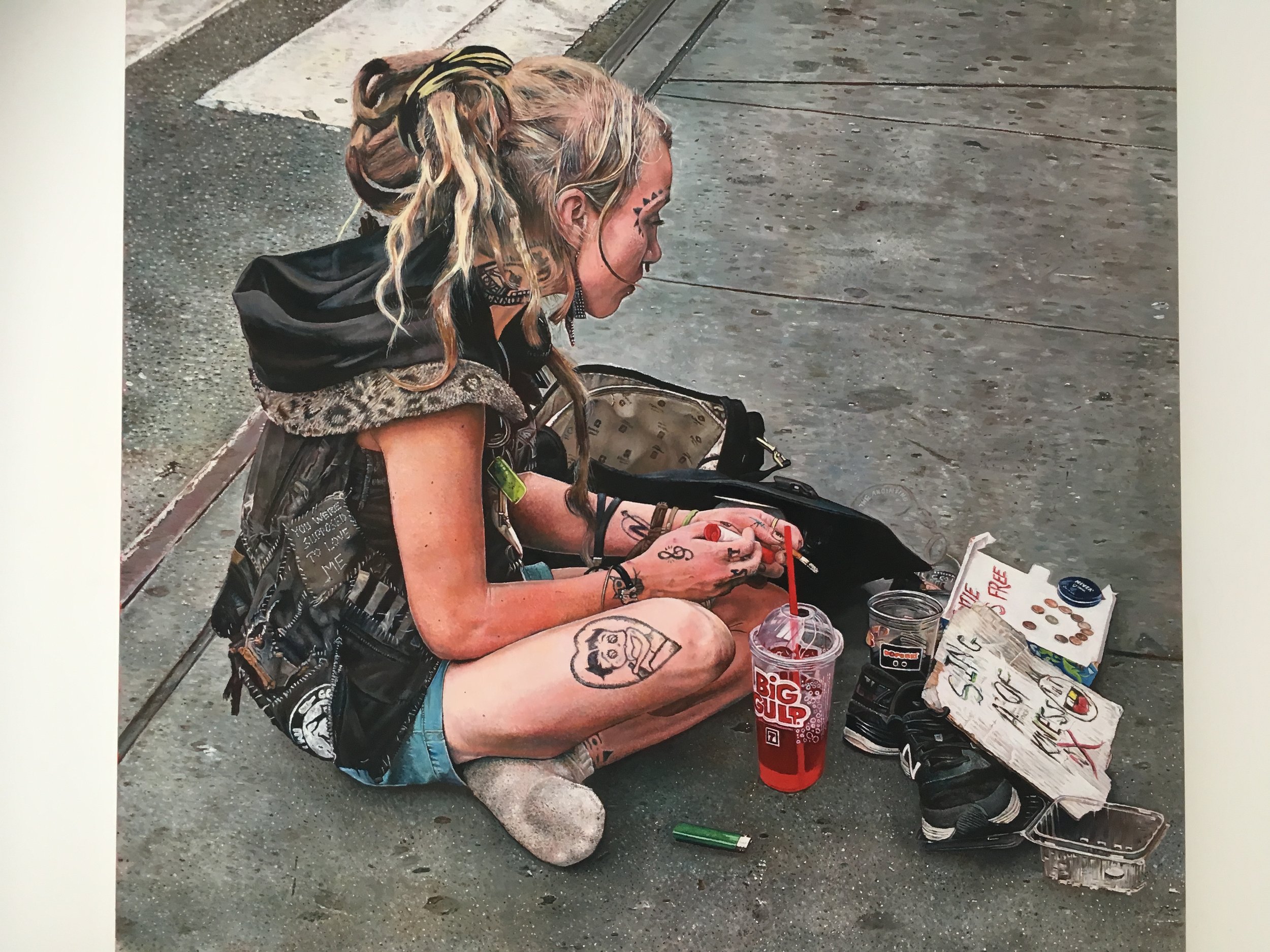ARTIST INTERVIEW: James Earley
James Earley
Please can you tell me about yourself and your journey as an artist
I was an artist at a young age. As a child art was my escape. I did not really enjoy my childhood and only felt at peace when I was painting. As I grew up, I saw this talent as a bit of a curse because it made me appear different and as a teenager I did not want to be “different” so I turned my back on art and studied for a degree in law. I spent twenty years in the field of law and business and during that time I never picked up a paint brush. As the years progressed, I began to realise that I was living a lie and my true passion was art, but I felt trapped in this environment. Eventually this internal conflict manifested itself into a kind of breakdown and that was my wake up call. I quit my job, moved to the south of France and began to paint and I have not stopped since. I have never been happier.
Mother
Your work raises awareness of social issues, why are these issues so important to you?
I use my art to raise awareness of issues such as poverty, racism and war. These issues are so important to me as I have seen the growing number of homeless people both here in the UK and in the USA; the richest country in the history of countries. I have seen the gap between the rich and poor get wider and wider and in my travels to some of the countries in Africa and Asia, I have seen up close how colonialism and racism have scarred the country and continue to strangle its people. I have seen the affects of war and sanctions in Iraq and Syria and I have seen and learnt that the real reasons of these wars like so many others were oil, money and power and the real victims of the war are the women and children. I am so angry about this and I can only let this anger out by painting my thoughts on a canvas.
Why do you think art is important in raising awareness of social issues such as; homelessness and war?
An Image is so powerful. I remember the famous photo “The Terror of War” that showed a child running from a napalm attack in Vietnam. This image will always serve as a reminder of the unspeakable evil of which humanity is capable. The aim of my art is to scream about the injustices, to demand attention and never be forgotten.
Shame
How has your art changed since you first started out as an artist?
My first series of work that I did were paintings of famous musicians. I was passionate about music. I remember being in Toulouse in the south of France and meeting a homeless guy, he was such a funny man, always smiling and laughing but if you looked closely you could see real trauma and sadness in his eyes. I felt compelled to paint him. I felt so angry about an economic system that seemed to be so brutal that people were forced to live on the streets to escape their external and internal demons. I was so angry that because love and empathy did not create profit, that we were now living in such a cruel world that I had to create a series of work on poverty. I felt that this pursuit of profit and greed was the cause of war, colonialism and imperialism so I had to paint these issues too. I only feel balanced and honest when I am painting subjects that choke my heart and I firmly believe that art has to be a straight line from your heart to the canvas.
Shadows
Are you emotionally attached to the pieces that you create?
Whilst I create a painting it is all I think about, I am obsessed with it, it dominates my thoughts day and night. It is really emotional and the whole process feels like a huge wave of energy passing over me forcing me under like a wave at sea and then when the painting is finished the wave has passed and I wait for the next wave to come. It is the process that is emotional to me and so I do not feel emotionally attached to the finished painting itself just the process.
African Hope
How do you choose your composition? What is your creative process?
I read a lot about the world that we live in and I listen to news on foreign news channels so I can get a more balanced view of the world. If I feel that when an issue is so unjust and the victims are being ignored such as the war in the Yemen which according to the Red Cross is the worlds worse humanitarian crisis and yet it receives so little coverage on mainstream tv such as the BBC, that I feel compelled to shout about it. My voice is loudest through a paint brush. My aim is to then create a painting that will pull people in, ask them to look further than what you see and then grab hold of that person. The painting has to be a contradiction so pulling the person in then pushing them away whilst at the same time grabbing hold of them. The composition has to follow those rules.
African
What inspires you to create art?
I create art every day, I am always in my studio. When I paint everything is calm. My mind normally feels like a sea in a storm but when I paint the storm stops and the sea is calm. I have to paint.
What do you think the key is to achieving a likeness in portraiture?
I think that to paint a good portrait two things are vital for me. Firstly, I have to know he subject and their story, if I did not know the person that I paint I find it really difficult to get the emotion in the work. The other thing is to win the battle in the mind, your brain tells you what colour the persons hair is (normally brown, black etc) what colour the skin is (pink, brown etc), but if you really look closely that is not the case. The colour that’s most important to me for skin tones is green, for hair colour I use reds and blues so what I am trying to say is that you must look really closely until you can look no further.
Twenty Twenty
How long does it take you to complete one of your works?
Normally a painting takes me between 4 to 6 weeks. I spend about 60 hours a week in the studio so the painting does take me a really long time to complete
Out of all the artworks that you have produced, which is your favourite and why?
I did a painting called “The Place of The Skull” which looks at the war in Iraq, the women and children victims of that war, the cruelty and suffering inflicted on mostly innocent people at the Abu Ghraib prison by the US soldiers. This painting is horrific and emotional and it was the painting that won the first prize at The London Biennale in 2019. That was so important because it seemed that the art world was finally brave enough to show this type of work and shine a light on it.
The Place Of The Skull
What has been your greatest achievement so far as an artist?
My greatest achievement as an Artist is being able to show my series of work on “Homelessness” in important galleries in London, Paris and New York. I feel that everyone deserves a portrait, everyone has the same value and portraiture should not be purely for the rich and famous. I felt in the past in the world of art that these issues were hidden away as they were not deemed aesthetically pleasing but now things are changing.
Mary
Why do you think art is important in society?
Art is a necessity. It communicates with people like no other way. It finds a direct and fast way to someones heart.










